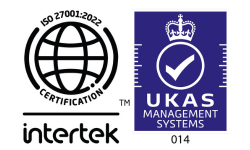Hybrid working has become a normalised part of working life, after businesses had to quickly adapt their processes to suit remote working during the pandemic. As a result, people now expect remote working to be a part of their contract, rather than being a perk or benefit.
Remote working is here to stay, however it does pose some challenges for HR and Finance teams as they need to manage and support new employees in these environments.
To help make this easier for companies, we’ve put together a few things you should consider doing when introducing new employees to a hybrid working environment.
Prepare for their first day
When preparing for an employee’s first day it’s important to set expectations and communicate clearly with them from the very beginning.
Having an onboarding checklist means you can plan ahead for every newcomer, allowing you to nail the process from start to finish.
The first few days of a new starter’s role are some of the most important days as this will form their overall impression of the company. During this time, you should give them the opportunity to settle in. To allow this, onboarding could look like this:
Day one:
- Give a general introduction to the company (if they’re in the office you could give them a tour)
- Run through any company policies and procedures
- Introduce them to other staff members
- Help them familiarise themselves with the equipment and technology they’ll be working with
- Ensure their personal information is uploaded on HR and Payroll software
Day two and after:
- Talk about any important tasks that need completing
- Have regular check-ins
- Undertake performance reviews
- Provide opportunities for the employee to ask any questions
Including these steps will help new employees feel welcome and more comfortable when they start their new role.
Build connections remotely
Building relationships remotely can be difficult as it can be hard to grasp how people are feeling, especially over emails and messages.
Here are a few ways you can build connections remotely:
- Make sure you communicate with each other – When working from home it can be easy to forget to keep in touch with people in your team, especially when you’re up to your neck in work. Scheduling check-ins throughout the week is a great way to communicate with your team more.
- Understanding when talking in person or on the phone is required – Sometimes, written messages aren’t the right option when discussions, feedback brainstorming sessions or questions need to be asked. Instead switch to phone or video calls to mix things up a bit and make it easier to communicate.
- Don’t just talk to your colleagues about business – When working in the office there’s more opportunities to have random conversations. However this can be difficult for hybrid workers as meetings usually have time constraints, while messaging can be highly time consuming. One way of getting around this could be by inputting weekly personal chats to give you and your team the opportunity to build more personal relationships.
Introducing mentorship and coaching opportunities is also another great way to get to know new and current employees, giving them the opportunity to learn and develop new skills and connections.
Why is mentoring important?
- It helps to build rapports – A study by Gartner and Capital Analytics found that 72% of mentees and 69% of mentors are likely to stay at a company compared to those who don’t participate in mentorship programmes.
- It allows you to take a holistic approach – Taking a holistic approach can include giving mentees the opportunity to talk about other things than work and provide more flexibility around the mentorship programme, such as holding meetings in different locations or at different times.
- Provides different ways to communicate – Everyone likes to communicate in different ways. With hybrid working mentorships can take place in person, through video-chats or over message.
Manage work and productivity
When it comes to managing staff’s work and productivity remotely, it can be slightly difficult to monitor as it’s easier for employees to commit time theft (tracking more time than they’ve taken to do a task.
Due to this it’s important to set clear expectations on time tracking throughout your company so that all team members understand what procedures they need to follow, also helping prevent time theft.
Here at Payescape, our Time and Attendance software, TimeEscape, can help you keep on top of your staff’s attendance. Book a demo with us today to see how TimeEscape can help you.
Setting clear goals will help staff balance their workload and stay organised. This can be done via weekly catch up calls, where you go over your team’s workload, priorities and the meetings they have. This will help you stay on top of task lists, and gives employees a regular opportunity to bring up any concerns.
Fostering a positive company culture
Retaining a positive company culture can be difficult, even when your entire team is working in the office. Doing this can be even harder when some of your team members work remotely.
Here are a few ways you can build a sense of community within your company:
- Have regular team building experiences, whether these are in person or virtually
- Introduce regular team meetings – again these can either be in person or online
- Put on social events
- Celebrate business and employee wins
- Encourage employees to work together and collaborate
- Prioritising onboarding
- Ask staff for feedback
- Provide growth opportunities for staff
It may feel slightly harder to build relationships and the type of culture you’ll be proud of with those who work from home, however it simply just requires more planning and organisation.
Get in touch with Payescape today to see how we can support you in helping your new employees thrive in a hybrid workplace.














